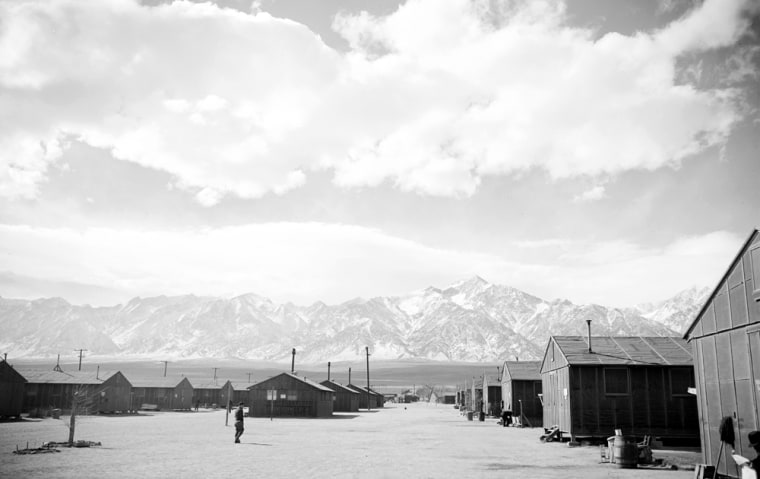Kristine Minami was in college before she learned that her father, grandmother and uncle had been essentially jailed by the U.S. government for the crime of being Japanese.
The detention of 120,000 Japanese-Americans during World War II was not discussed in Minami's household. She learned about it in the 1980s through the National Day of Remembrance, which was observed around the country Thursday.
The discovery led Minami to greater understanding of her culture — and herself. Many hope the Day of Remembrance will also lead to greater understanding that Americans come in all types of packages.
"It got me more interested in my history and my roots," said Minami, who grew up in Maryland with a Japanese father and white mother, and says her Asian heritage is not immediately apparent.
"I learned about being Japanese," said Minami, 40, who ended up writing her senior thesis about the effects of the internment. "It led me down the path to my identity."
Executive Order 9066
Executive Order 9066 was signed by President Franklin D. Roosevelt on Feb. 19, 1942, giving the government power to uproot entire innocent communities due to fears of "sabotage and espionage."
In 1988, President Reagan signed a law that apologized and paid $20,000 to each survivor.
"We have this shared history," said Bonnie Clark, an assistant professor of anthropology at the University of Denver who is excavating materials from a former internment camp. The artifacts will be displayed during the university's remembrance program.
"The internment is very much a Japanese-American story, but it's all of our stories," Clark said. "It's about the decisions we have to make as a populace, holding our politicians responsible for their behavior, understanding that we all come to the table with these different traditions and trying to balance out a vision for ourselves."
The remembrance also serves as a sort of conscience, a reminder of the balance between security and civil rights in the era of global terrorism, Guantanamo Bay and expanded government wiretapping.
"It shows the fragile nature of our civil and constitutional rights, and the importance of holding people accountable and remaining vigilant," said Gordon Aoyagi, a board member of the National Japanese American Memorial Foundation, which was holding a panel discussion in Washington D.C. on Thursday to mark the occasion.
For Mary Murakami, who spent three years in a detention camp, the day represents something simple.
"It shows that it did happen," said Murakami, now 82.
Murakami was 14 when she saw a notice posted on a telephone pole outside her San Francisco home saying that all Japanese families would be "evacuated" and taken to camps.
Her parents, fearful that they would be separated from their children, took a portrait of themselves and gave a copy to each child. Murakami still has the photo.
Lived behind barbed wire
Families were told to take only what they could carry. The Murakamis and other families stored their belongings in their church, but thieves soon broke the door down and ransacked the storage room.
Murakami lived with her family behind barbed wire at a camp on a dry Utah lake bed. Instead of sharing family meals, they ate in a mess hall. Toilet stalls faced each other and had no doors. She slept on an Army cot, the family's single room warmed by a potbellied stove.
In 1943 the government decided to test the loyalty of the detainees with a questionnaire, Murakami remembers. One of the questions was, "Would you be willing to serve in the U.S. Army?" Her brother answered "yes" and was drafted out of the detention camp.
After three years of confinement, Murakami's family was released. They were given $25 each to start over.
Today, Murakami shows little bitterness over this history, just a determination that it not be forgotten.
"We don't want it to happen ever again," she said.
Minami calls the internment saga "a really powerful story about democracy."
"It's an ugly part of American history, but it's important for people to know," she said. "Because of that ugly chapter, we had a renewal of the American democracy."
